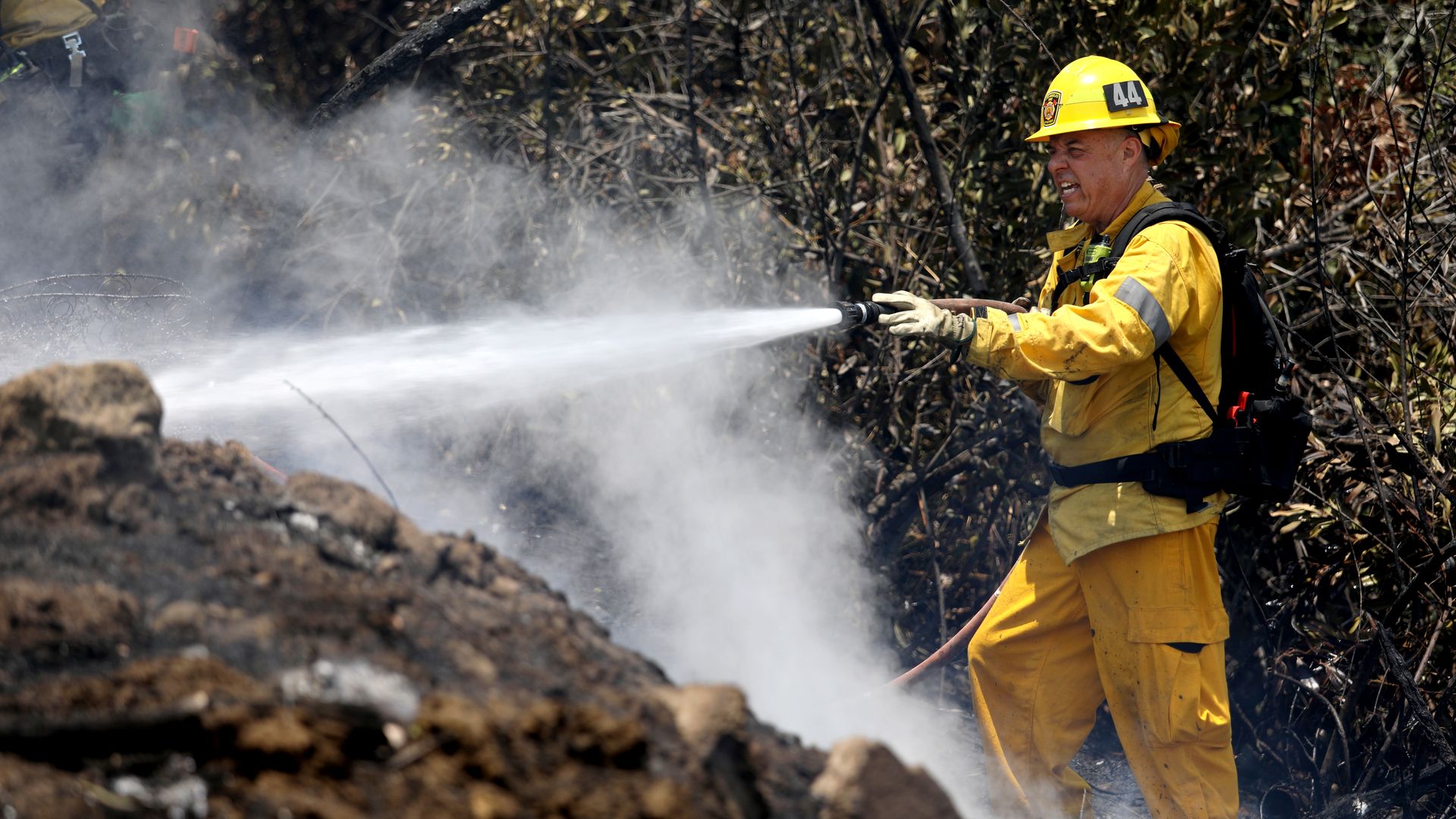Biden moves to raise federal firefighters' pay as wildfire season kicks off
Add Axios as your preferred source to
see more of our stories on Google.

The Los Angeles Fire Department mops up a brush fire in a homeless camp on Radio Hill in Elysian Park on June 16, 2021 in Los Angeles, Calif. (Gary Coronado / Los Angeles Times via Getty Images)
In the midst of the worst heat wave in the history of the Pacific Northwest and an early start to the West's wildfire season, the Biden administration is moving to raise federal firefighters' pay while taking other steps to bolster wildfire preparedness.
Why it matters: With a severe drought gripping the West, particularly California and Arizona, Biden and other members of his administration will convene virtually with a group of western governors Wednesday to discuss the challenges that lie ahead this summer and fall.
Driving the news: The drought, combined with all-time record high temperatures, are prompting hurried federal, state and local preparations for what is expected to be a severe wildfire season region-wide.
What's happening: Officials plan to roll out a series of measures designed to help lower the risk of devastating blazes and shore up the federal firefighting force, a senior administration official told reporters.
The details: The White House is raising the pay for federal wildland firefighters to $15 per hour, and will move to provide up to 10% retention bonuses at the end of the season to full-time firefighters who choose to stay on, the official said. Temporary firefighters will also be offered incentives to remain on the job.
- The salary increase comes after President Biden expressed surprise at the $13 per hour salary paid to some federal firefighters during a wildfire briefing on June 22.
- The administration plans to work with Congress to secure additional funding to train and equip more members of the military and firefighters to be able to act as "surge" forces to head to areas with large fires that may be overtaxing other fire crews.
- The federal government is also working to provide new fire detection and warning applications to provide citizens with the situational awareness needed in potentially life-or death situations.
What they're saying: "Decades of shifting development patterns, land and fire management decisions and climate change have resulted in wildfires that move with a speed, intensity and reach that was previously unseen," the official stated.
- "This is created conditions where wildfires too often overwhelm our response capabilities, resulting in billions of dollars in economic losses."
The bottom line: California experienced its worst wildfire season on record last year, and there are concerns that this could soon be eclipsed.
- Experts say that whether 2021 outpaces last year's benchmarks depends in part on how many extreme fire weather days, which typically feature unusually high temperatures, dry, gusty winds, and lightning strikes, materialize. But the entire state, especially forested lands, are primed to burn.
- Already, two large blazes were burning in northern California on Tuesday evening, prompting thousands to evacuate.
